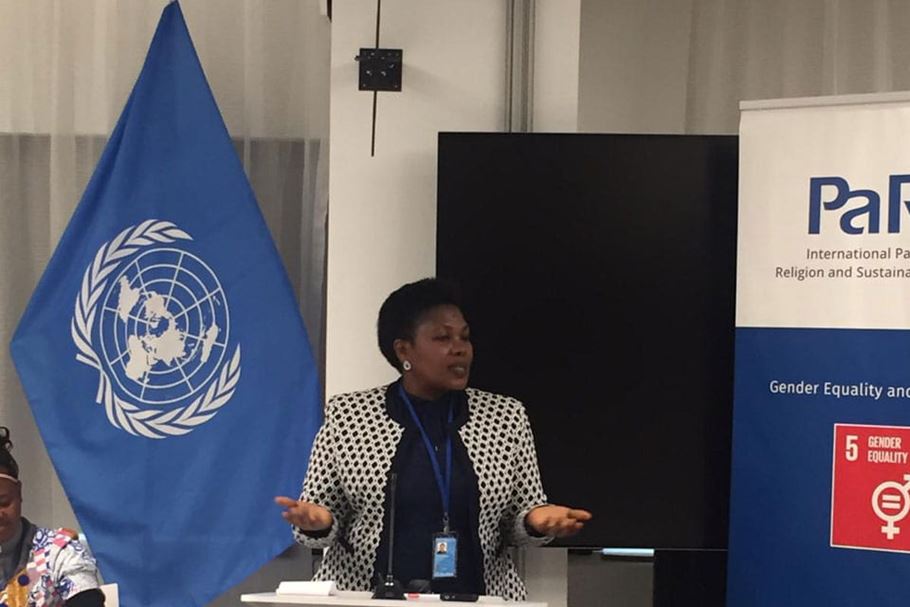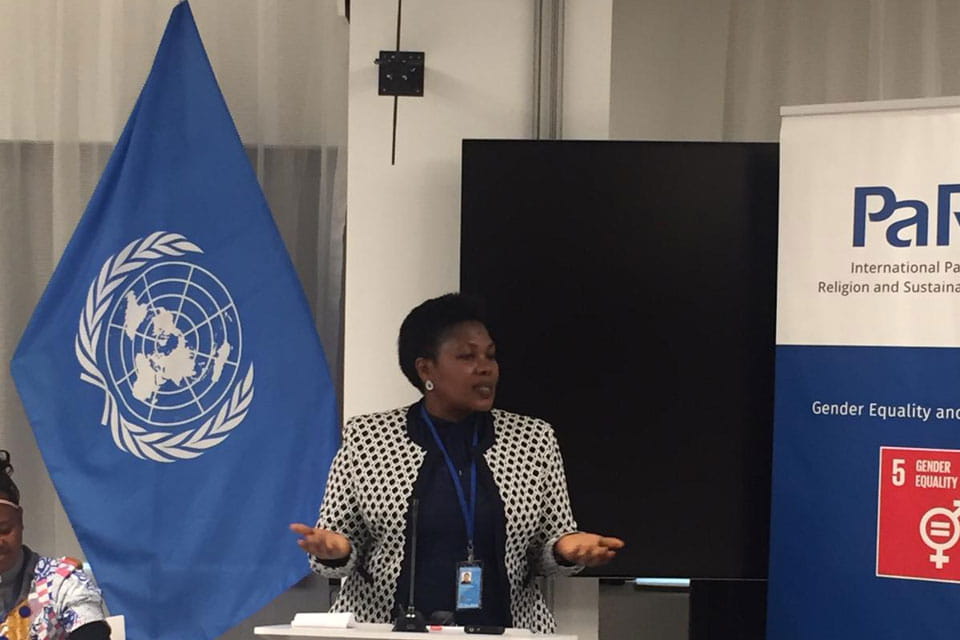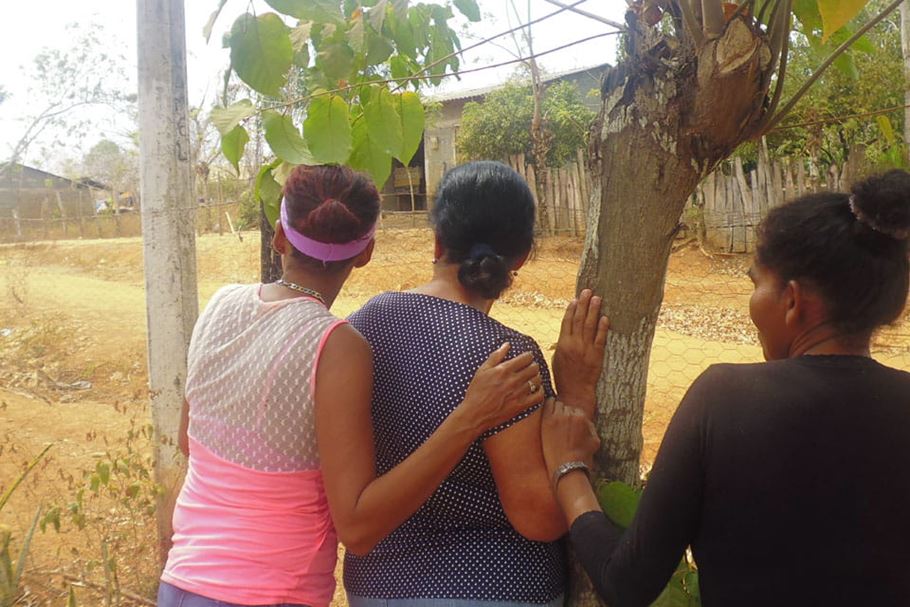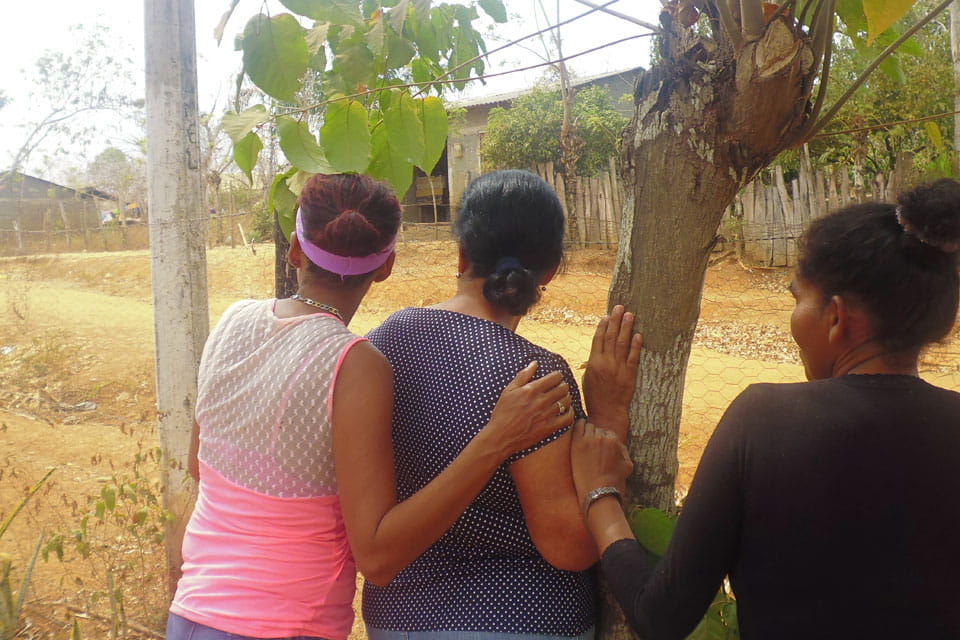Is your church part of the solution?
Around the world, millions of women are experiencing violence and abuse on a daily basis. Is your church part of the solution, or could it be making matters worse?
Written by Tearfund | 16 Apr 2019



Written by
Written by Tearfund
Around the world, millions of women are experiencing violence and abuse on a daily basis. Is your church part of the solution, or could it actually be making matters worse?
It was one of the questions Tearfund’s Solange Mbonigaba asked when she recently spoke to the UN Commission on the Status of Women. Solange supports a global movement of sexual and gender-based violence (SGBV) survivors – a movement started by Tearfund. Too many times, the answer has tragically been ‘no’. However, as Solange says, there are some simple ways that can change…
Warning: this article mentions cases of sexual and gender-based violence.
Mahoro* lives in the Kwazulu Natal province of South Africa. I met her in April 2015 while attending a contextual Bible studies workshop in Durban. These Bible studies are used in a church setting to break the silence around SGBV. Her story is tragic, but sadly it isn’t unusual in any part of the world.
She was raped when she was a young woman. It’s never an easy thing to talk about, but when she opened up to her family, there was no comfort or concern: they told her that she had ‘brought a curse upon them’.
She tried to bring the perpetrator to justice, but without success.


Solange speaking to UN Commission on the Status of Women
‘All around the world, when people feel persecuted or threatened they turn to a church for sanctuary.’
Years later, Mahoro married hoping that this would bring her peace and stability. However, upon learning that she had lost her virginity when she was raped, her husband started beating her. He called her a prostitute. Mahoro didn’t know what to do and reached out again for help, this time to the church.
The answer she received was both dangerous and unhelpful. Sadly, though, it didn’t surprise me in the least. The minister told Mahoro that she should ‘submit to her husband’ – based presumably on Paul’s instructions in the book of Ephesians.
Finally though, she did find the help and support she desperately needed. It didn’t come from a church leader or an institution though. She found a group of fellow women survivors of sexual and gender-based violence. For the first time she found people who were able to listen to her cry for help and offer wise counsel.
Mahoro’s story has some important lessons for us, as Christians and church leaders – how we can better respond to, and support survivors of SGBV:
- People still turn to the church for help: be ready! After others had failed to support her, Mahoro went to her church for help. She felt instinctively, that they might offer her some support and stand up for her. Around the world, people still listen when faith leaders stand up for others. However, the way you try to help is vital.
- You need to listen. I know this sounds obvious, but you would be amazed how often Christians and church ministers rush in to offer 'the answer': 'you need to submit to your husband', 'you need to forgive your attacker immediately,' and so on. Survivors of SGBV have powerful stories to share, and until you have allowed them to open their hearts fully (without pushing them to share what they don’t want to), it’s unlikely you’ll have much to offer them in return.


‘These are the people who have the stories, experiences and insights that can truly change your church.’
- The church can be a place of safety for survivors. All around the world, when people feel persecuted or threatened they turn to a church for sanctuary. Faith leaders can offer a place in which survivors feel safe. You can offer them a safe space, where they can share their story without worry of judgment or further persecution and abuse.
- Put survivors first. If you or your church wants to work with survivors of abuse, or even to speak out about the issues related to it, there is one important rule: ‘Nothing about us without us’. In other words, you can’t help properly unless the survivors themselves are playing a key part in your work. These are the people who have the stories, experiences and insights that can truly change your church… and your community.
Around the world, abuse, violence and discrimination against women is still commonplace. However the church can and does make a huge difference when it chooses to take a stand. Is your church part of the solution?
You can read more about Tearfund’s work with SGBV and survivors of SGBV at Tearfund Learn.
Please pray
Loving Lord God, thank you for the fact that you place infinite value on each one of us. I pray for churches in South Africa and around the world who have chosen to become a place of safety and healing to women who face SGBV. Show me if there is any way, large or small, that I can be part of the solution, along with my church.
Amen
* Name has been changed to protect identity.
Share this page
Share this page to spread the word and help support those in need.

Get our email updates
Learn about our work and stay in touch with Tearfund. Hear about our news, activities and appeals by email.
Sign up now - Get our email updates





.png)
